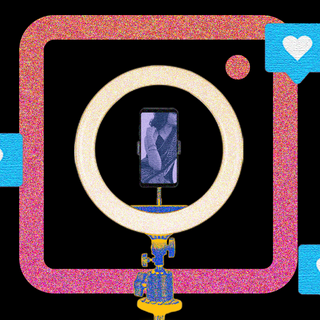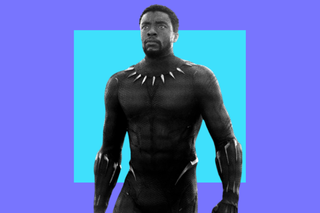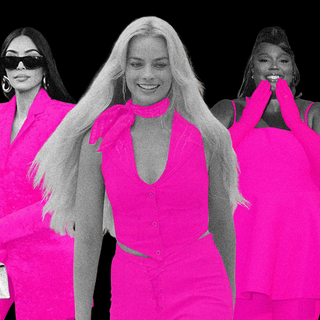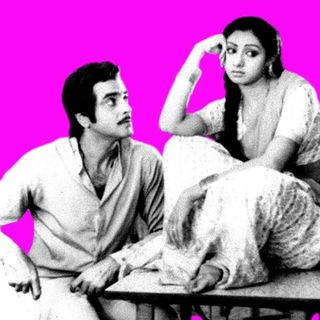
New ‘Black Panther’ Promos Raise Ethical Questions About Monetizing Dead Artists’ Legacies
The recent Black Panther film’s trailer was uploaded on deceased actor Chadwick Boseman’s Twitter, to mixed reactions from fans.

Last Saturday, Marvel unveiled its newest slate of movies and TV shows in its ever-expanding, omnipresent Cinematic Universe (MCU). Amid much excitement, Kevin Feige, the president of Marvel Studios, announced the line-ups for Phase IV and Phase V of the MCU — the high points of which included the next two Avengers titles, and a return of fan-favorite Charlie Cox as Daredevil in his own show. The loudest cheer, though, was reserved for a high-on-emotions trailer of Black Panther: Wakanda Forever, sequel to the 2018 movie featuring the MCU’s first African superhero, starring Chadwick Boseman.
The same time as Marvel Studios unveiled the trailer at a packed hall inside the San Diego Comic Con, Boseman also uploaded it on his Twitter. This would be normal, except for the fact that the actor passed away two years ago. Chadwick Boseman died in 2020 after a private four-year-long battle with colon cancer. In the aftermath of his demise, Marvel had announced that in honor of Boseman’s legacy as Black Panther they will not recast another actor as T’Challa, and instead explore other stories in Wakanda, the fictional Afro-futuristic nation Black Panther comes from. While several fans were emotional after the trailer and considered it to be a befitting tribute to the actor, many were displeased with Disney-owned Marvel using a dead actor’s Twitter following to advertise their latest product.
This isn’t the first time a dead artist’s legacy has been milked to garner publicity and sell movie tickets and other entertainment products. Only recently, a verified Twitter account under the name of Elvis Presley (who died almost three decades before the social network was created) was busy promoting the Baz Luhrmann-directed biopic on the entertainer. Similarly, the account of Marvel icon Stan Lee remains active in Twitter, even four years after his demise. Despite continued requests — and criticism — from fans to discontinue posting as they saw it as a mark of disrespect, the account keeps posting almost daily, including at times to sell NFTs.
Related on The Swaddle:
Why Martin Scorsese’s Criticism of the Marvel Franchise Continues to Be Relevant
Chadwick Boseman left behind a rich legacy, with prolific work that positively impacted other African Americans. Long before he was chosen by Marvel to play Black Panther — a role that perhaps sits at the top of his iconic body of work — Boseman was bringing to life important stories of Black America. He had portrayed on screen monumental figures of the community such as Major League legend Jackie Robinson, singer James Brown, and the first African American Supreme Court Justice Thurgood Marshall.
As Black Panther, Boseman was aware of the weight he was carrying on his shoulders. He understood what it would mean for Black people — not just in America but across the world — to see someone just like them play a superhero on screen. While filming, he insisted that T’Challa should speak with an African accent instead of a colonial American or British accent, and that made a significant difference in the perception of the character. The “Wakanda Forever” salute — something that the actor helped create — that the characters make in the movie translated into real life as a symbol of Black pride and resistance. When news of his demise came in, people noted how greatly influential his work had been to Black people across the world.
Such was the influence of Boseman’s work that when his team announced the news of his demise via Twitter, it soon became the most-liked post in the history of the social network’s existence. Disney choosing to post the trailer through his account, then, feels like a reduction of Boseman’s legacy to his Twitter reach. Fans and audiences noted how it was extremely gross that Marvel wanted to promote the film in this manner.
Earlier this year, Marvel licensed Stan Lee’s digital likeness for future use in theme parks and movies, a move that has been criticized extensively due to the concerns it raises about the extent of control media corporations have over artists and their work. In 2016, Disney used digital reconstructions of actors Peter Cushing and Carrie Fisher in the film Rogue One: A Star Wars Story, triggering difficult questions on the morality of using actors — humans with their own lives outside of their body of work — long after their demise. Elsewhere, during the making of Roadrunner, a documentary on the late chef Anthony Bourdain, the director had used an AI-generated voice in the likeness of Bourdain. Commenting on the Star Wars incident, journalist Mitchell Chapman had noted in a column that even though Disney did get the approval of Cushing’s estate to use his likeness, it was ultimately just that: Cushing himself could not consent to the use of his likeness for a movie.
The release of Black Panther: Wakanda Forever‘s trailer through Boseman’s Twitter, in the same way, is something that Boseman can never consent to. Disney’s repeated use of deceased artists’ assets may be fully legal, but they raise pressing moral and ethical questions nonetheless. Employing deceased artists for profit amounts to a refusal of according them the dignity of death. It fails to look at their demise as permanent and unchanging, and is a dehumanization of the artists who with their memorable work in life impacted the world.
Amlan Sarkar is a staff writer at TheSwaddle. He writes about the intersection between pop culture and politics. You can reach him on Instagram @amlansarkr.
Related


The ‘Barbiecore’ Aesthetic Shows How Reclamation Isn’t Always Subversive
